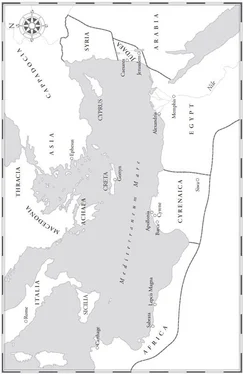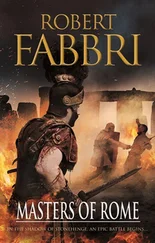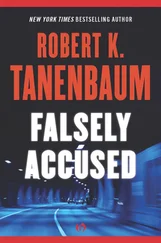Robert Fabbri - False God of Rome
Здесь есть возможность читать онлайн «Robert Fabbri - False God of Rome» весь текст электронной книги совершенно бесплатно (целиком полную версию без сокращений). В некоторых случаях можно слушать аудио, скачать через торрент в формате fb2 и присутствует краткое содержание. Жанр: Исторические приключения, на английском языке. Описание произведения, (предисловие) а так же отзывы посетителей доступны на портале библиотеки ЛибКат.
- Название:False God of Rome
- Автор:
- Жанр:
- Год:неизвестен
- ISBN:нет данных
- Рейтинг книги:3 / 5. Голосов: 1
-
Избранное:Добавить в избранное
- Отзывы:
-
Ваша оценка:
- 60
- 1
- 2
- 3
- 4
- 5
False God of Rome: краткое содержание, описание и аннотация
Предлагаем к чтению аннотацию, описание, краткое содержание или предисловие (зависит от того, что написал сам автор книги «False God of Rome»). Если вы не нашли необходимую информацию о книге — напишите в комментариях, мы постараемся отыскать её.
False God of Rome — читать онлайн бесплатно полную книгу (весь текст) целиком
Ниже представлен текст книги, разбитый по страницам. Система сохранения места последней прочитанной страницы, позволяет с удобством читать онлайн бесплатно книгу «False God of Rome», без необходимости каждый раз заново искать на чём Вы остановились. Поставьте закладку, и сможете в любой момент перейти на страницу, на которой закончили чтение.
Интервал:
Закладка:
Sabinus suddenly saw the depth of his error of judgement. ‘Whereas if we condemned him the priests would be able to appeal for calm and expect to be listened to; and that, along with a show of force by us, should be enough to stop an uprising.’
‘Exactly,’ Pilatus said mockingly, ‘you’ve finally got there. So, Herod, I’ve got to defuse this quickly before Yeshua’s followers start rousing the people. What should I do?’
‘You must go to the palace first thing tomorrow.’
‘To overturn the sentence?’
‘No, you can’t let this man live now that you’ve finally got him. You’ve got to reunite the priests with the people so that they can control them.’
‘Yes, but how?’
‘By turning a Jewish stoning into a Roman crucifixion.’
‘This man must die,’ the High Priest Caiaphas hissed at Pilatus through his long, full grey beard. Regaled in his sumptuous robes and topped with a curious, bejewelled domed hat made of silk, he looked, to Sabinus, much more like an eastern client king than a priest; but then, to judge by the size and splendour of the Jews’ Temple, Judaism was a very wealthy religion and its priests could afford to be extravagant with the money that the poor, in the hope of being seen by their god as righteous, pumped their way.
‘And he will, priest,’ Pilatus replied; never normally in the best of moods for the first couple of hours after dawn, he was striving to keep his fragile temper. ‘But he will die the Roman way, not the Jewish.’
Sabinus stood with Herod Agrippa watching the struggle between the two most powerful men in the province with interest. It had been an acrimonious meeting, especially after Pilatus had, with great relish, pointed out the trap that Yeshua had set for Caiaphas and how he had been politically maladroit enough to fall into it.
‘To avoid an uprising,’ Pilatus continued, ‘which, judging from the reports I’ve had, Yeshua’s followers are already initiating, you must do as I’ve ordered immediately.’
‘And how can I trust you to do what you’ve promised?’
‘Are you being deliberately obtuse?’ Pilatus snapped, his temper no longer able to take the strain of dealing with this self-serving priest. ‘Because in this instance we are both on the same side. The preparations have been made and the orders given. Now go!’
Caiaphas turned and walked, with as much dignity as he could muster after being summarily dismissed, out of the magnificent, high-ceilinged audience chamber, the centrepiece of the late Herod the Great’s palace on the west side of the upper city.
‘What do you think, Herod?’ Pilatus asked.
‘I think that he’ll play his part. Are the troops ready?’
‘Yes.’ Pilatus turned his bloodshot eyes to Sabinus. ‘Now’s your chance to redeem yourself, quaestor; just do as Herod has told you.’
The noise of a raucous mob grew as Sabinus and Herod approached the main entrance to the palace. Stepping out of the high, polished cedar-wood doors, they were confronted by a huge crowd filling the whole of the agora before the palace and overflowing into the wide avenue at its far end that led up to the Temple and the Antonia Fortress.
The shadows were long and the air chill, it being only the first hour of the day. Glancing up to his left Sabinus could see, on the hill of Golgotha beyond the Old Gate in the city walls, a cross that was always left standing between executions as a reminder to the populace of the fate that awaited them should they seek to oppose the power of Rome.
Caiaphas stood on the top of the palace steps with his arms raised in an attempt to quieten the crowd. He was surrounded by a dozen fellow priests; behind them, guarded by Paulus and a group of Temple Guards, stood Yeshua with his hands bound and with a blood-stained bandage around his head.
Gradually the noise subsided and Caiaphas began his address.
‘What’s he saying?’ Sabinus asked Herod.
‘He’s appealed for calm and now he’s telling them that, because of his popularity with the common people, Yeshua is to be pardoned and released from Jewish custody in a gesture of mercy at this time of Passover.’
A loud cheer went up from the crowd as Caiaphas stopped speaking. After a few moments the High Priest raised his arms, again asking for quiet before continuing.
‘He’s now asking them to return to their homes,’ Herod translated, ‘and he says that Yeshua will be freed immediately.’
Sabinus watched, knowing that his moment to act was imminent; Caiaphas turned and nodded at Paulus who reluctantly began to untie his prisoner’s hands.
‘Now!’ Herod hissed. ‘And try not to say anything stupid.’
‘That man is now a prisoner of the Senate of Rome,’ Sabinus bellowed, walking forward; behind him Longinus led a half-century of auxiliaries out of the palace, quickly surrounding the Temple Guards and their erstwhile prisoner. From the direction of the Antonia Fortress a cohort of auxiliaries marched down the avenue and formed up behind the crowd, blocking the road and any chance of escape.
‘What is the meaning of this?’ Caiaphas shouted at Sabinus, playing his part rather too theatrically.
‘The Senate requires that this man, Yeshua, be tried before Caesar’s representative, Prefect Pilatus,’ Sabinus replied in a high, loud voice that carried over the agora. Angry shouts started to emanate from the crowd as those who could speak Greek translated Sabinus’ words for their fellows. As the noise of the crowd grew, the cohort behind it drew their swords and began to beat them rhythmically on their shields.
Pilatus stepped out of the palace accompanied by a bedraggled and bruised Jew. He walked past Sabinus and, standing next to Caiaphas, signalled for silence; the shouting and the clashing of weapons died down.
‘My hands are tied,’ he declaimed, crossing his wrists above his head. ‘Quaestor Titus Flavius Sabinus has demanded, on behalf of the Senate, that I try Yeshua for claiming to be a king and inciting rebellion against Caesar; as a servant of Rome I cannot refuse such a demand. If he is found guilty it will be Rome that is sentencing him, not me, your prefect. I wash my hands of his blood for this is not of my doing, it is the will of the Senate.’ He paused and brought the Jew who accompanied him forward. ‘However, in a spirit of goodwill and to show the clemency of Rome I will, in honour of your Passover festival, release to you another Yeshua whom you hold dear: this man, Yeshua bar Abbas.’
To roars of approval Pilatus ushered the freed man down the palace steps to disappear into the joyous crowd.
‘They’ve had their sop, priest, now use your authority over them and get them to disperse before I have to massacre the lot,’ Pilatus hissed at Caiaphas as he turned to go. ‘Herod, come with me.’
‘I think that I will absent myself now, with your permission, prefect. It would not be good for a Jewish prince to be associated with this man’s death, and besides I should be entertaining my Parthian guests.’
‘As you wish. Longinus, bring the prisoner to me once you’ve softened him up a bit.’
‘So you’re the man who calls himself the King of the Jews?’ Pilatus asserted, looking down at the broken man kneeling on the audience chamber floor before his curule chair.
‘They are your words, not mine,’ Yeshua replied, lifting his head painfully to meet his accuser’s eyes; blood, from the wounds inflicted by a thorn crown, rammed mockingly on his head, matted his hair and dripped down his face. Sabinus could see that his back bore the livid marks of a severe whipping.
‘Yet you don’t deny them.’
‘My kingdom is not of the physical world.’ Yeshua raised his bound hands to touch his head. ‘It is, like all men’s, in here.’
Читать дальшеИнтервал:
Закладка:
Похожие книги на «False God of Rome»
Представляем Вашему вниманию похожие книги на «False God of Rome» списком для выбора. Мы отобрали схожую по названию и смыслу литературу в надежде предоставить читателям больше вариантов отыскать новые, интересные, ещё непрочитанные произведения.
Обсуждение, отзывы о книге «False God of Rome» и просто собственные мнения читателей. Оставьте ваши комментарии, напишите, что Вы думаете о произведении, его смысле или главных героях. Укажите что конкретно понравилось, а что нет, и почему Вы так считаете.












